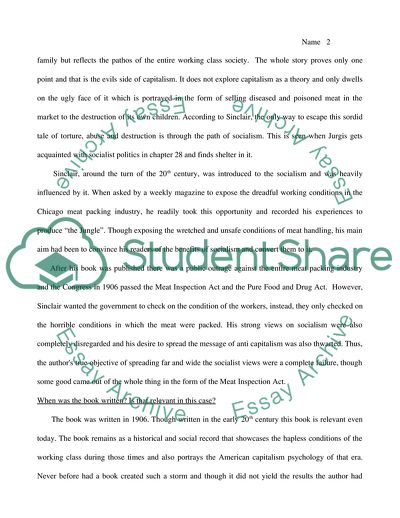Cite this document
(Analysis of The Jungle Book by Upton Sinclair Report/Review, n.d.)
Analysis of The Jungle Book by Upton Sinclair Report/Review. Retrieved from https://studentshare.org/sociology/1723742-the-jungle-american-literature
Analysis of The Jungle Book by Upton Sinclair Report/Review. Retrieved from https://studentshare.org/sociology/1723742-the-jungle-american-literature
(Analysis of The Jungle Book by Upton Sinclair Report/Review)
Analysis of The Jungle Book by Upton Sinclair Report/Review. https://studentshare.org/sociology/1723742-the-jungle-american-literature.
Analysis of The Jungle Book by Upton Sinclair Report/Review. https://studentshare.org/sociology/1723742-the-jungle-american-literature.
“Analysis of The Jungle Book by Upton Sinclair Report/Review”, n.d. https://studentshare.org/sociology/1723742-the-jungle-american-literature.


